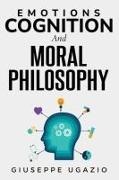Read more
In this dissertation I propose a combined philosophical and scientific approach to morality with the intent of clarifying some of the most controversial issues in this field. The scientific contribution of my work will mostly focus on advancing our understanding of the role played by emotional (in study I) and cognitive mechanisms (in study II) in determining moral decisions. The philosophical component of this thesis will focus on discussing the implications of empirically studying morality, such as the two previously mentioned, for the development of more accurate philosophical moral theories. The introduction will introduce the existing descriptive theories and models of moral judgments, discussing their strengths and shortcomings. This thorough discussion allows to accurately design studies which may overcome the shortcomings found. demonstrate using behavioral measurements that emotions have an important role in moral judgments. More specifically, the influence they exert on moral judgments can be predicted when taking into account their motivational dimension. While emotions resulting in approach motivation increase the number of actions we judge as morally permissible, those resulting in withdrawal motivation reduce the number of actions we judge as morally permissible. Furthermore, study I also shows that the influence emotions exert on moral judgments depends on the type of moral decisions.

